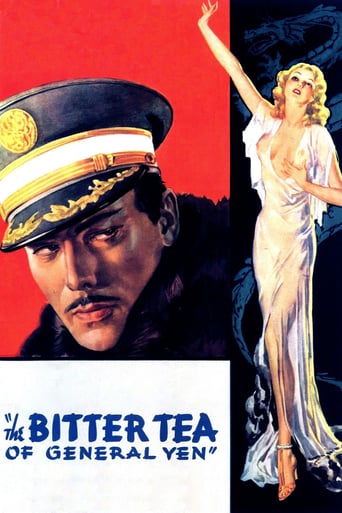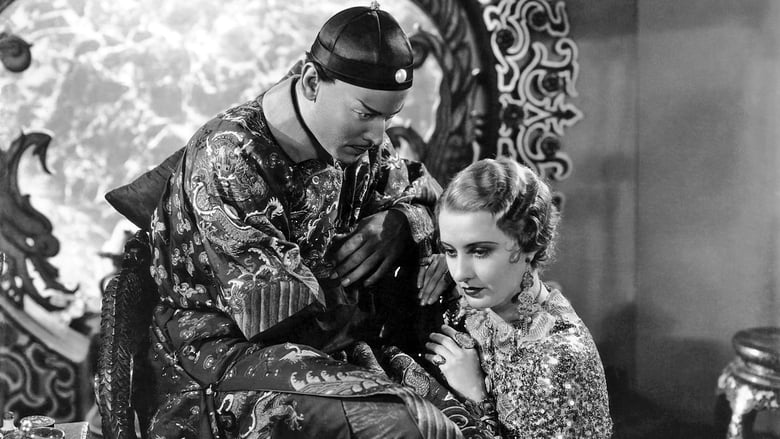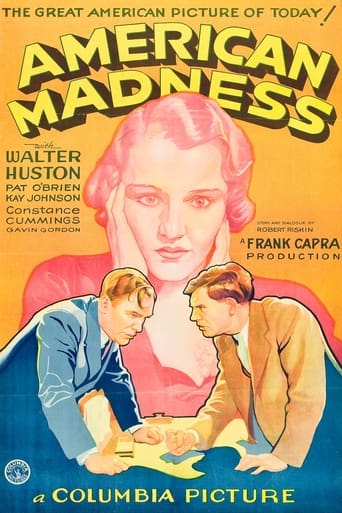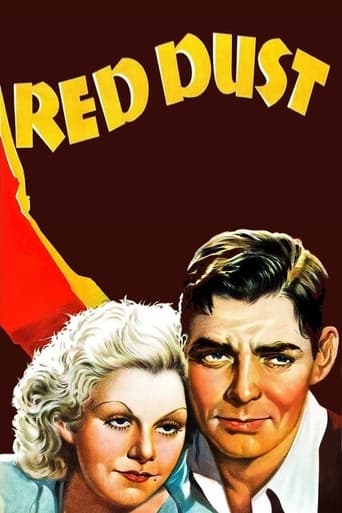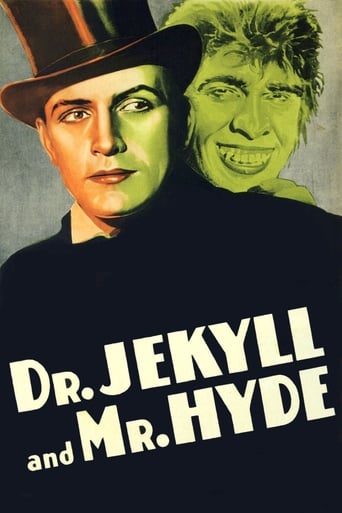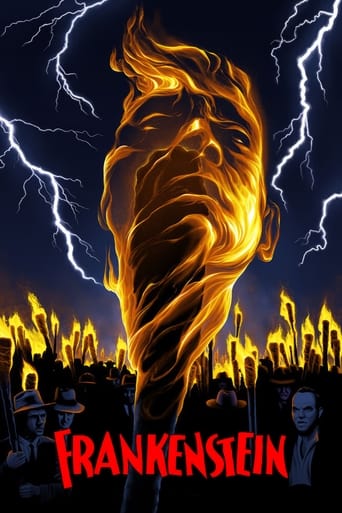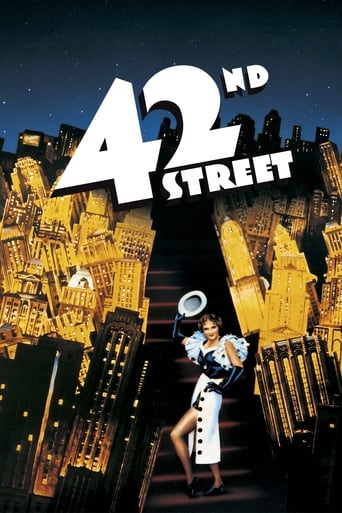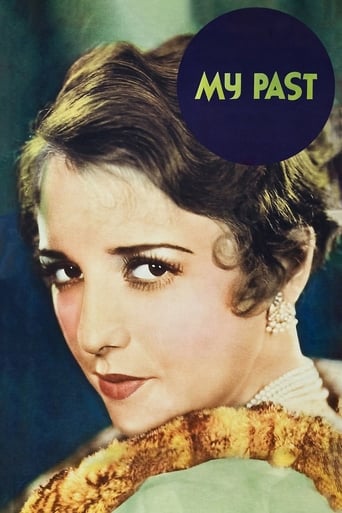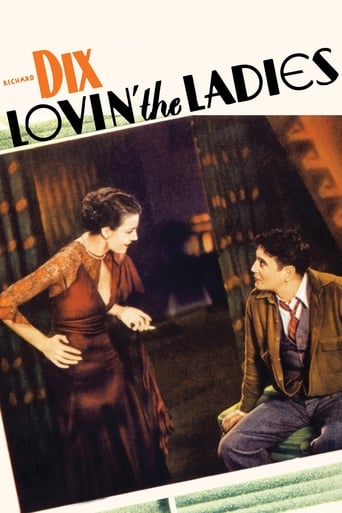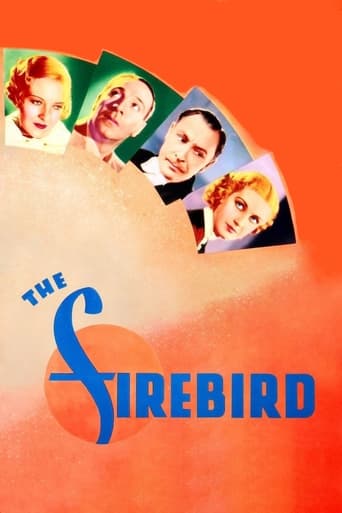The Bitter Tea of General Yen (1933)
An American missionary is gradually seduced by a courtly warlord holding her in Shanghai.
Watch Trailer
Cast
Similar titles
Reviews
The Age of Commercialism
Excellent but underrated film
A Masterpiece!
Through painfully honest and emotional moments, the movie becomes irresistibly relatable
This picture is on TV pretty often, so often that I usually miss it. The title sounds uninviting, like a dull movie about a tea plantation. Then I saw it on a big screen last month at a film festival and I was astonished. I was especially astonished by Nils Asther's portrayal of the General, and I'm not sure I've seen him in anything else. It was a hypnotic performance, as good a job of acting as has ever been put on the Silver Screen. The film was early Stanwyck but she was as good as ever and, coupled with Asther, they worked magic.The picture has been reviewed about 50 times now and everyone recaps the plot. It's enough to say it is possibly Capra's best effort. I thought the pace of the film compared to "Lost Horizon", the action and energy of the opening scenes and then the placid unfolding of the main story, which in both cases turns out to be a love story - and then the knockout ending. Also noteworthy are the spectacular sets and the shimmering, immaculate photography. I saw it at Cinevent, Columbus, O., 5/13.
I would describe this film as sumptuous, erotic, sophisticated and emotionally complex. It is a 1933 Frank Capra film, about a love affair between a Christian missionary's fiancée and an educated Chinese warlord, a film which broke the taboo against depicting inter-racial relationships just prior to the introduction of the reactionary Hayes code in Hollywood.As a work of film craftsmanship and artistry it is just breath-taking - starting with the initial scenes of chaos in the midst of a bombing raid where Megan Davis (Barbara Stanwyk) makes her first impression on General Yen through a small act of kindness. The crowd scenes are masterfully directed and the photography positively glows. Later on, watch the superimposition of images as they gradually hover around Megan's face, suggesting a dream state. Then, in the train compartment, the three main characters are assembled - Megan, General Yen, and Yen's concubine, Mah-Li. Without a word being spoken the camera prowls among the three characters catching every little nuance of the eyes and body language as they react to one another. It is very intimate - almost uncomfortably so - and very dramatic. There is a dream sequence of Megan's later in the film, too. I will not spoil it for you, but it is provocative and jaw-dropping, and it must have caused gasps in the audience back in 1933.The film is somewhat a psychological dance among the main characters. None of them is quite who they seem to be or even who they think they are. As General Yen's fortunes decline Megan's dearly held Christian beliefs seem overwhelmed by a tragic set of events that she has no control over but which she is inexorably a part of. Even when she is compelled to bargain for the Christian ideal of mercy, Yen is stung, fearing he is being "taken" by a missionary type, while loving said missionary type so passionately. Nils Asther's performance as Yen is, at this point, heartbreaking.It has been commented that several Chinese in the Christian household at the beginning of the film appear in shadow and are depicted as sinister. That is not my take on it at all. If anything, this film is anti-racist .Those Chinese servants in shadows are depicted as being practically invisible to the whites at the party - people you snap your fingers at if you want an hors-d'oeuvre or the piano played. David Lean did something similar in "A Passage to India" decades later. Toshia Mori, as Mah-Li, plays a fully-developed character, and adds considerable weight to the authenticity of the movie. Oh, and Walter Connolly, as the resident white scumbag, fatuous as he may sound, delivers a lot of wisdom and expert postulating, particularly at the end. He's a one-man Greek chorus.
Though it dates from 1933 both director Capra and actress Stanwyck were veterans of the movies and had indeed already worked together notably on Miracle Woman, a thinly-veiled take on Aimee Semple MacPherson. This time the canvas is broader embracing racism, politics and miscegenation just for starters. Swedish Nils Asther was convincing as the eponymous Chinese warlord who more or less kidnaps Stanwyck who has ostensibly journeyed to China to marry her missionary fiancé. Much has been made of the erotic dream sequence which gives Stanwyck an opportunity to confront her sexual confusion - attraction/repulsion - regarding Yen. For the time the setting was remarkably authentic and we have to score it as a little-known/seen gem.
I didn't actually know it was from director Frank Capra (It's a Wonderful Life) till I actually started watching it, it featured in the book 1001 Movies You Must See Before You Die, that is why I watched. Set during the Chinese Civil War, American missionary Megan Davis (Double Indemnity's Barbara Stanwyck) arrives in Shanghai to marry Dr. Robert 'Bob' Strike (Gavin Gordon), but they postpone the wedding to rescue orphans from an orphanage burning in the battlefield. The group are separated in the chaos, and Megan faints, waking in the palace of the man who saved/kidnapped her, warlord General Yen (Nils Asther). The General's mistress Mah-Li (Toshia Mori) gets close to Megan, and he accuses her of betraying him, giving enemies classified information. He falls for Megan, and does spare Mah-Li's life, which doesn't make his financial adviser Jones (Walter Connolly) very happy. Megan does slowly start to fall for the cruel, powerful and gentle General, but Mah-Li did in fact betray him and has destroyed his empire, and Megan watches him kill himself with his last (poisoned) bitter tea. Also starring Lucien Littlefield as Mr. Jacobson, Richard Loo as Captain Li, Clara Blandick as Mrs. Jackson, Moy Ming as Dr. Lin, Robert Wayne as Reverend Bostwick, Knute Erickson as Dr. Hansen, Ella Hall as Mrs. Amelia Hansen, Arthur Millett as Mr. Pettis, Helen Jerome Eddy as Miss Reed and Martha Mattox as Miss Avery. Stanwyck does very well as the lead female character, and Swedish actor Asther is superbly subtle as the nasty General, and there are some eye-catching moments, such as the battle sequences, so it is an impressive classic drama. Very good!
